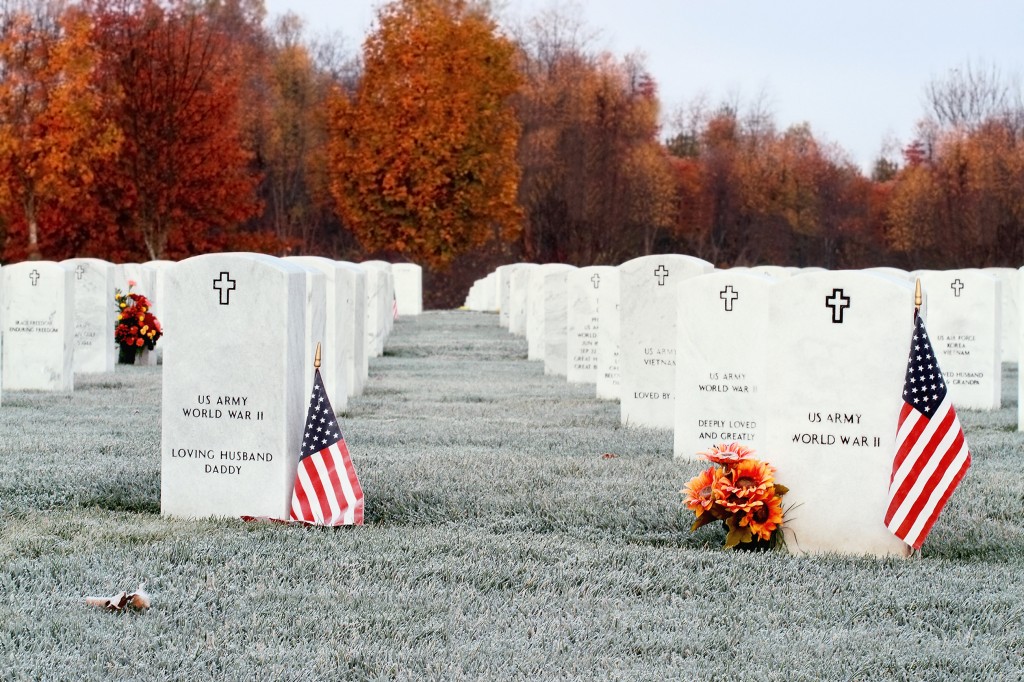The U.S. Memorial Day, observed each year during the last Monday of May, is an age-old American tradition to honor and commemorate the sacrifices of the millions of men and women who selflessly gave up their lives in defense of the country. Far from just saluting the fallen soldiers’ laser etched or engraved memorials, this annual holiday entails ceremonies that exult the sacrifices the fallen Americans made on battlefields, both domestic and overseas
Additionally, there are peculiar traditions and unknown facts about the celebration that render its mystery despite being a well-celebrated American holiday. Some of these facts you might already know in school, while some may come as a complete surprise to you. But, just what are these interesting tidbits about Memorial Day, you may ask?
Here are eight Memorial Day facts that you probably didn’t know:
- A small group of freed slaves initiated one of the earliest ‘Memorial Day’ celebrations
- It was originally called Decoration Day
- Early Memorial Day celebrations didn’t always fall on the last Monday of May
- No, U.S. flags aren’t meant to remain at half-staff throughout the day
- A World War I-era poem inspired the tradition of wearing red poppies
- American Presidents and Vice Presidents are dictated by custom to deliver a Memorial Day speech
- Yes, early Memorial Day celebrations involved food
- Those ‘Taps’ notes were originally meant to serve as soldier’s lullaby
A small group of freed slaves initiated one of the earliest ‘Memorial Day’ celebrations
While it wasn’t until 1966 that the U.S Federal government formally named Waterloo, New York as the official birthplace of the celebration, there have been numerous past versions of Memorial Day. In 1865, just a few months after the Confederacy raised the white flag, a small group of freed slaves in Charleston, North Carolina initiated one of the earliest recorded ‘Memorial Day’ celebrations. This celebration helped give birth to the modern-day tradition of honoring all fallen American military servicemen and women.
It was originally called Decoration Day
While you might already know about this, how it came to be known initially as Decoration Day might be something you’re not aware of. Before its official naming as Memorial Day in the 1880s, the celebration was first called Decoration Day by virtue of the decoration on the graves of the fallen soldiers carried out by their surviving comrades. Memorial Day only became an official holiday in 1967, a year after the Federal government officially declared the place where it all began — Waterloo in the State of New York.
Early Memorial Day celebrations didn’t always fall on the last Monday of May
While it’s easy to have the mistaken assumption that this important U.S. holiday has always been celebrated on the last Monday of May each year, it wasn’t always the case. The truth is that the earliest celebrations of this holiday were held on the 30th of May — which only means that it could fall on any day of the week.
No, U.S. flags aren’t meant to remain at half-staff throughout the day
 Official rules released by the Federal government on how Memorial Day must be observed specifically provided for U.S. flags to be flown at half-staff only until noon of the day of celebration, and then be flown at full staff from thereon. Doing otherwise can be considered a violation of the Federal Flag Code.
Official rules released by the Federal government on how Memorial Day must be observed specifically provided for U.S. flags to be flown at half-staff only until noon of the day of celebration, and then be flown at full staff from thereon. Doing otherwise can be considered a violation of the Federal Flag Code.
A World War I-era poem inspired the tradition of wearing red poppies
Lt. Col. John McCrae’s World War I-era poem titled “In Flanders Field” where the image of red poppies stood out inspired the tradition of wearing red poppies. French Anna Guerin and American Moina Michael took inspiration from the said poem and began selling artificial poppies to raise funds to support children who became victims of the war. The tradition persisted to this day and has become an indelible fabric of the annual celebrations.
American Presidents and Vice Presidents are dictated by custom to deliver a Memorial Day speech
Memorial Day traditions include U.S. Presidents and Vice Presidents delivering a speech at the Tomb of the Unknown Soldier located at the Arlington National Cemetery in Arlington Country, Virginia.
Yes, early Memorial Day celebrations involved food
These days, barbecues and other food are part of Memorial Day celebrations, but so was the case in the early celebrations of the said holiday. While one may think that those early affairs were done in pure solemnity (thus, minus the consumption of food), picnics held at the burial sites of fallen soldiers have been the norm for the longest time.
Those ‘Taps’ notes were originally meant to serve as soldier’s lullaby
Yes, the notes for Taps were initially meant to signal that it’s already time for the battle-weary soldiers to hit the sack and regain their strength for another day at the battlefield. A U.S. Civil War general wrote the notes with such a purpose in mind until Taps was used in a funeral as a way of avoiding the traditional gun salute for fear of being mistaken as a signal for an armed attack.







